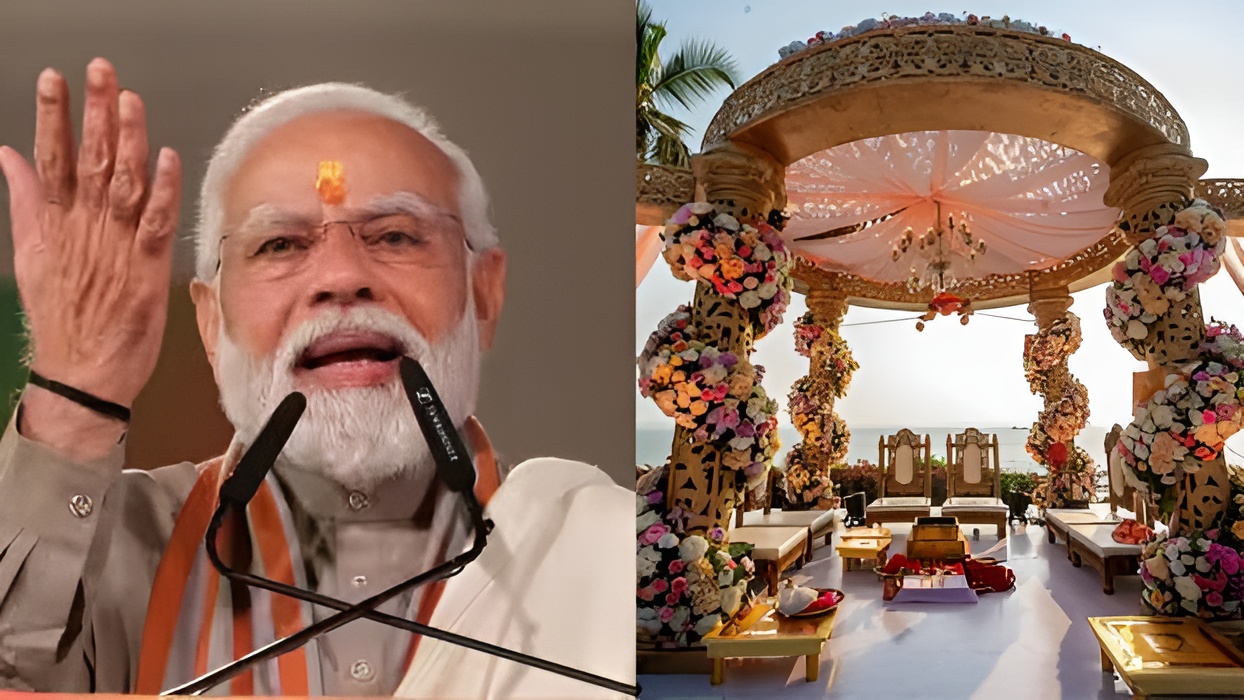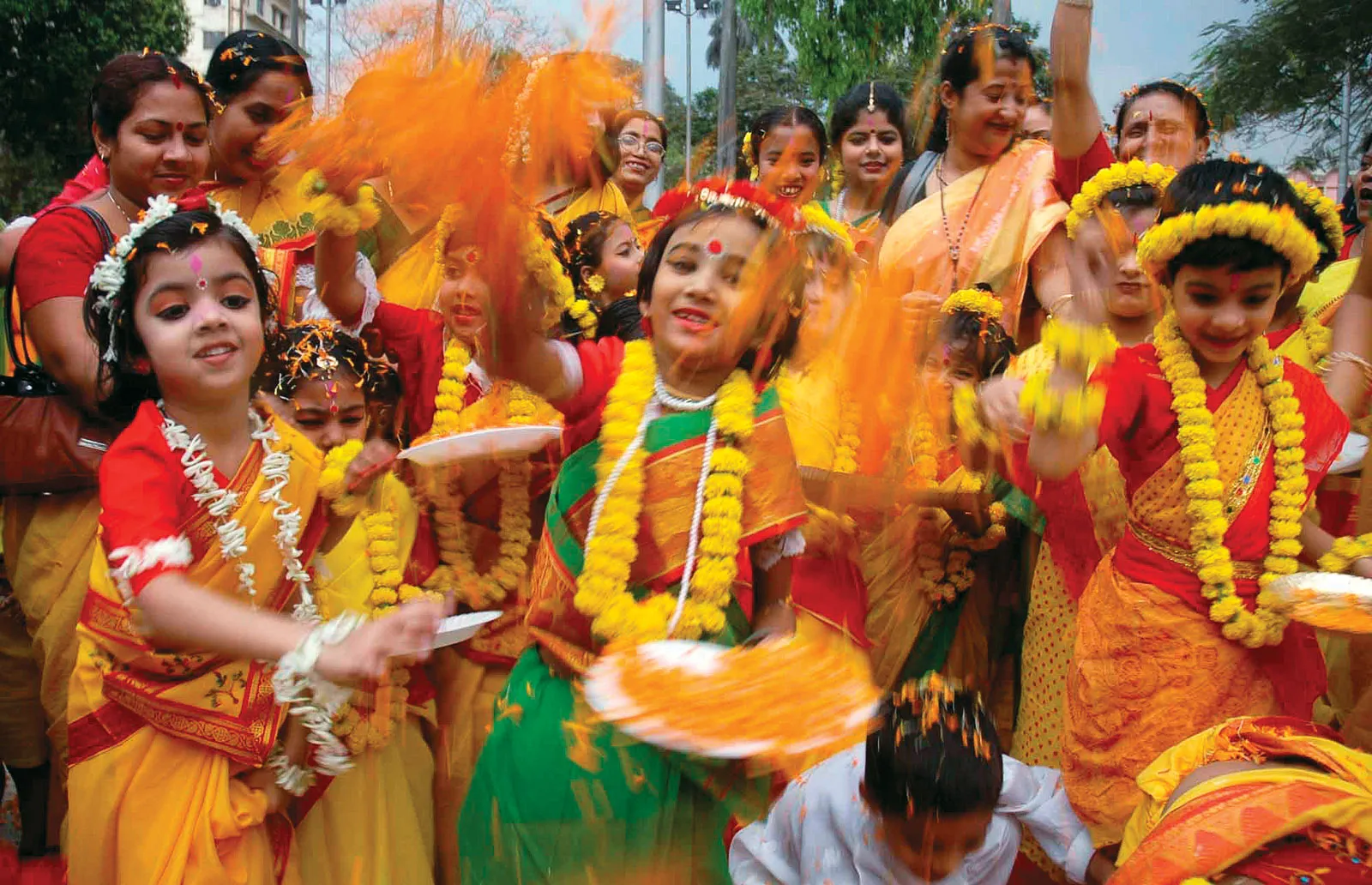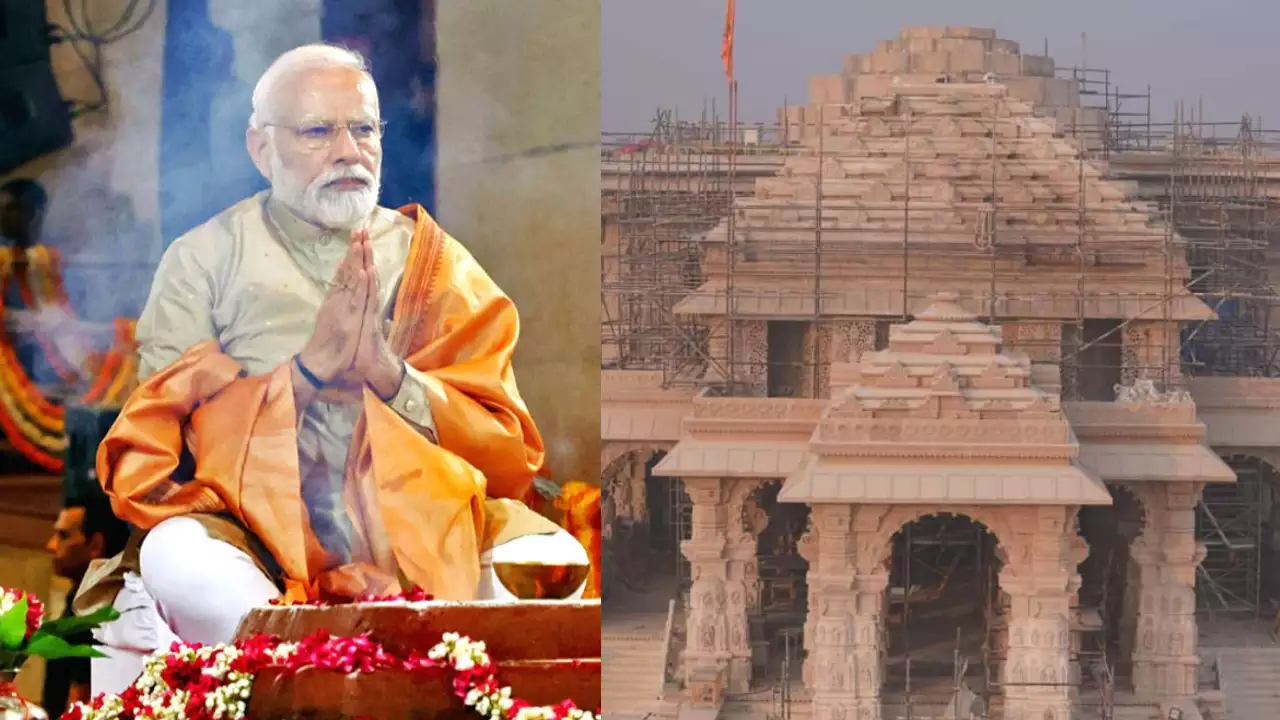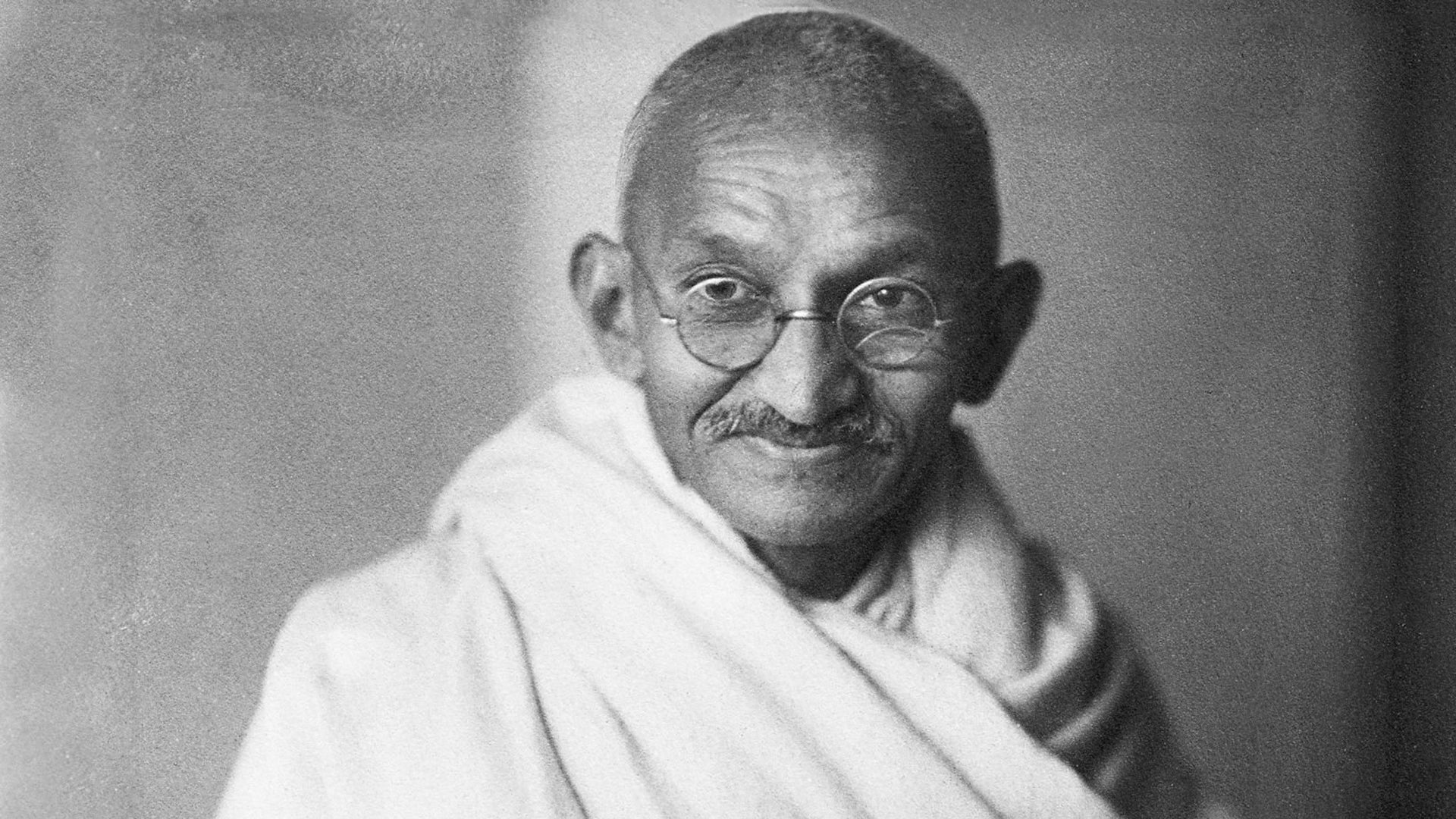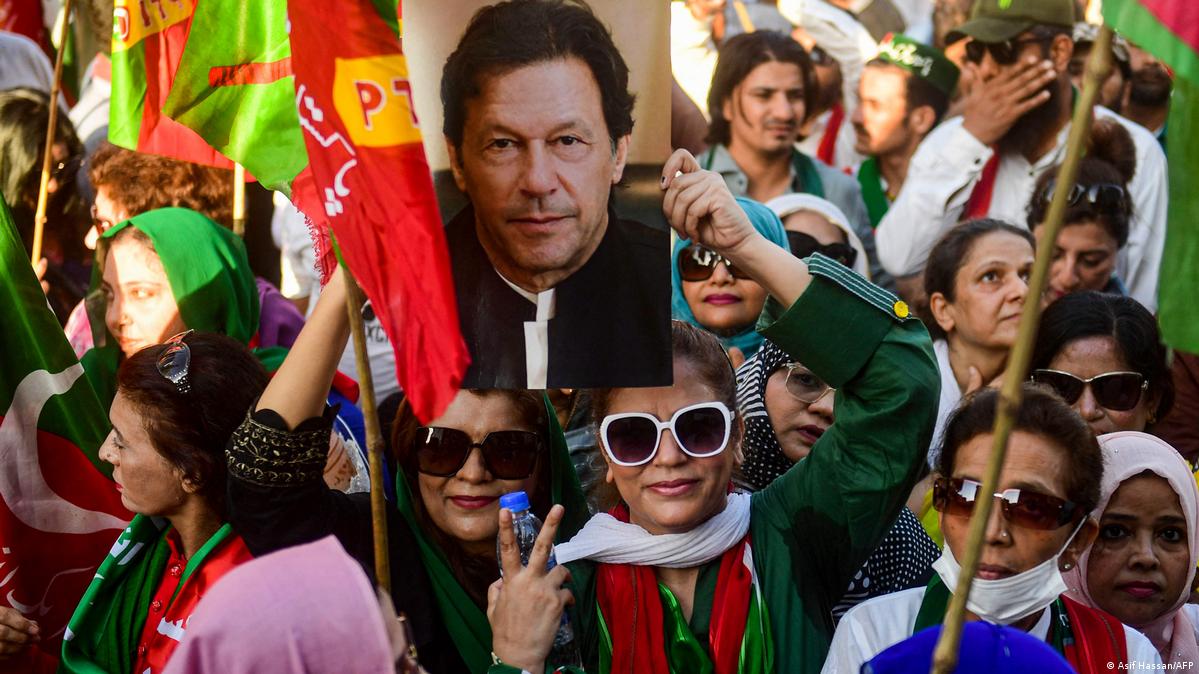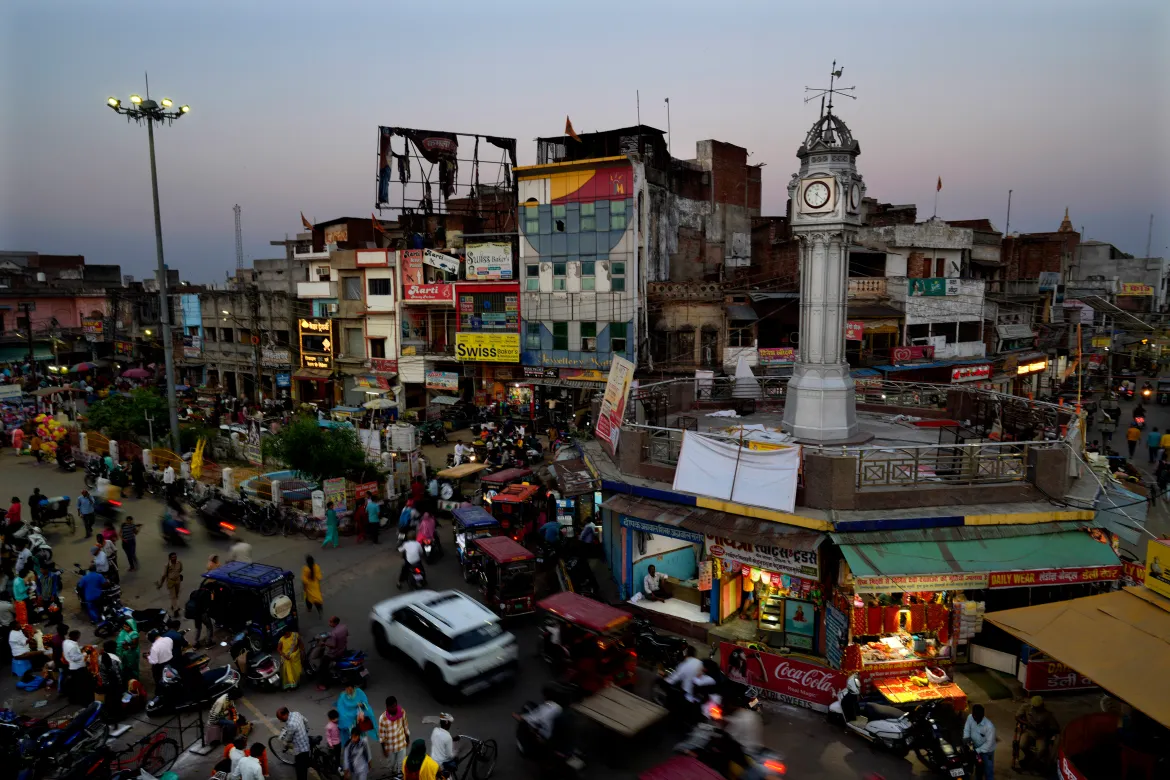A new surge of economic enthusiasm has been generated by Prime Minister Narendra Modi’s call to ‘marry in India,’ portraying marriages as a potential engine of economic growth. This innovative concept was unveiled on November 26 on the ‘Mann Ki Baat’ show with the intention of persuading wealthy families to hold their lavish celebrations in India rather than abroad. Prime Minister Narendra Modi has underscored the economic advantages of holding major events in India, and the ‘Wed in India’ programme is a calculated addition to earlier campaigns like Make in India and Travel in India.
Millionaire and billionaire families have increasingly chosen to have destination weddings overseas in recent years. Unofficial estimates suggest that every year, about 5,000 destination weddings take place abroad, costing anywhere between ₹ 75,000 crore and ₹ 1 lakh crore. According to Prime Minister Modi, the economy can be greatly stimulated by allocating a percentage of these costs to weddings held in India.
In India, the wedding industry has developed into a lavish, theme-based enterprise held in beautiful venues. These celebrations, which typically last a weekend or more, include elaborate meals, pre-wedding activities, and Bollywood-style parties. Such weddings have a significant economic impact on a number of industries, including hospitality, travel, retail, and luxury spending.
The ‘Wed in India’ campaign is supported in large part by the growing number of high-net-worth people (HNIs), who have assets above $1 million. As per the findings of Knight Frank’s ‘The Wealth Report 2023,’ the number of high-net-worth people (HNIs) is projected to increase from 7.9 lakh in 2022 to 16.5 lakh by 2027–18. This change in the population not only offers a sizable market for destination weddings but also presents chances for associated industries like jewellery, costumes, and upscale services.
The ‘Wed in India’ campaign is supported in large part by the growing number of high-net-worth people (HNIs), who have assets above $1 million. As per the findings of Knight Frank’s ‘The Wealth Report 2023,’ the number of high-net-worth people (HNIs) is projected to increase from 7.9 lakh in 2022 to 16.5 lakh by 2027–18. This change in the population not only offers a sizable market for destination weddings but also presents chances for associated industries like jewellery, costumes, and upscale services.
The Confederation of All India Traders (CAIT) revealed that during the previous wedding season, around ₹ 4.25 lakh crore was exchanged in the market through purchases related to weddings, with approximately six lakh marriages involved. This was a notable 26% increase over the same period last year, and it is expected that this trend will hold true for the current wedding season, which runs through July.
In response to the Prime Minister’s call, the Union Tourism Ministry is getting ready to introduce a comprehensive campaign called “India says I do.” This campaign intends to draw foreign couples to India to celebrate their special day, in addition to convincing wealthy Indian families to choose domestic venues for their weddings. Working together with important wedding industry players, such as hotel owners, the specifics of this campaign are being developed.
The president of CAIT, BC Bhartia, notes that it is a source of great pride for some to hold destination weddings abroad, which brings in a substantial amount of money and commerce for India. To keep this industry in India, he supports marketing Indian states as the best places to be married. Around 100 main cities in India have over 2,000 possible wedding locations, according to Bhartia, and can accommodate weddings of all price ranges.
States with a focus on wedding tourism, like Rajasthan, Kerala, Uttarakhand, and Goa, have put state-specific laws and incentives into place. These regulations include unique packages designed for couples and their families, fostering an atmosphere that is ideal for throwing lavish parties. For instance, Goa, which is well-known for its gorgeous beaches, has established itself as a popular location for weddings and has a major impact on the earnings of the resorts and hotels that line its shore.
Hotels in India have created wedding packages costing several crores, giving a range of services from general to specialised arrangements, as the wedding industry meets the hospitality sector. In the nation, Udaipur and Jodhpur in Rajasthan, Goa, and Kerala are well-liked wedding locations. There are many different places to choose from across the nation, so weddings can vary in size from modest to extravagant.
Beyond conventional growth paths like agriculture, industries, and services, India needs creative and unconventional efforts to properly utilise its human and natural resources. The ‘Wed in India’ campaign by Prime Minister Modi has the ability to boost the multiplier effect, generate jobs, and make a substantial contribution to the nation’s economic growth towards a $5 trillion GDP.
India has the talent, the facilities, and the ecology needed to become a destination wedding hotspot. The ‘Wed in India’ programme aims to use this potential and bring internal stakeholders into alignment. Through the promotion of India as a wedding destination, the project hopes to retain significant financial resources domestically and promote long-term, sustainable growth and development.
